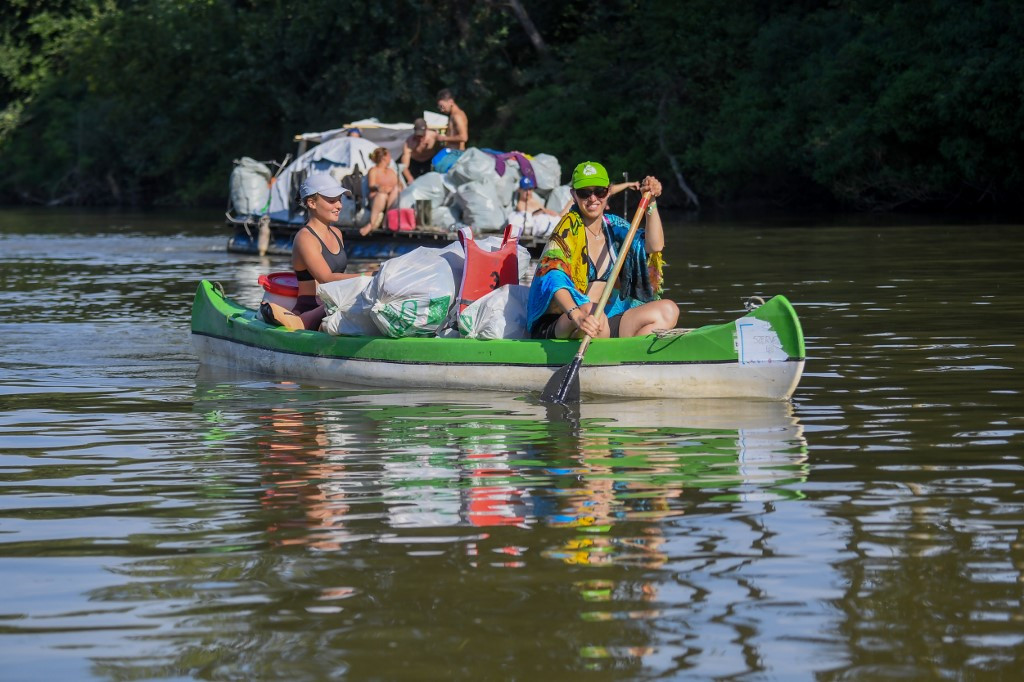Popular Reads
Top Results
Can't find what you're looking for?
View all search resultsPopular Reads
Top Results
Can't find what you're looking for?
View all search resultsRowers dredge waste in days-long Hungary race
Change text size
Gift Premium Articles
to Anyone
T
he 150-odd competitors meeting on the banks of Hungary's second largest river carried somewhat unusual equipment for a boat race -- protective gloves, rubber boots and large bags.
Their challenge was to collect as much rubbish as possible from the Tisza, in the northeast of the country on the Ukrainian border, navigating it on rafts, built themselves from trash, for nine days.
"Every year since 2013, we start again where we left off the previous season," said competition organizer Attila Molnar.
This year, more than eight tonnes of rubbish -- such as plastic bottles, tires and cans -- were collected from the river and its surrounding floodplains during the Upper Tisza Plastic Cup from August 1 to 9.
With just half as many participants because of the coronavirus pandemic, that was still almost as much as in 2019, when racers managed to clean up an 80-kilometer section of the water course, according to organizers.
"I think that, in all, we have extracted between 50 and 60 tons of waste over the past eight years," calculates 52-year-old competitor Istvan Palko.
While Hungary's president has become one of the competition's sponsors, the water authority has taken on the challenge of keeping the cleaned sections rubbish-free, such as by closing the waterway with locks.
Read also: Indonesian students win award for plan to clean up Citarum River
'Hell, this is hard!'
For the race, typically about a dozen rafts start from a small pier -- itself built from rubbish recovered from this tributary of the Danube -- and row downstream between 10 and 20 km a day.
The distance covered over the nine race days is "enormous", according to Laszlo Helmeczi, the mayor of Zahony, one of the small riverside towns, who enthusiastically praises competitors' "superhuman effort".
Rafters prefer to use plastic bottles scooped out of the water in huge nets to make their vessels because they increase buoyancy.
Other rubbish, including parasols, fridge doors and pipes, can then be used to constitute the hull and the cockpit.
During evening stopovers, racers participate in awareness programs on environmental protection with locals, as well as lectures on the fauna, flora, history and heritage of the region, where ferocious fifth-century ruler Attila the Hun died.
Race participant Dalma Farkas described the area as a kingdom "of mosquitoes and spiders".
Many of the competitors are also involved the rest of the year in environmental associations in Hungary.
"We are men of the water," said Viktor Kocsis, 40, who has been participating in the Cup for years and whose makeshift boat's name is a Hungarian expression, which roughly translates as "Hell, this is hard!".











